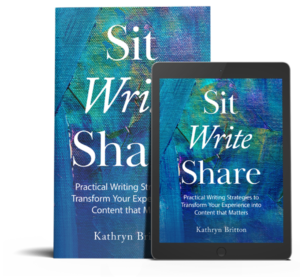Feedback is good early, middle and late in a writing project, but the kind of feedback you need changes as you go. Who do you ask? How do you invite them to give you the feedback you need? They will probably appreciate you telling them where you want them to put their attention.
Who could provide feedback?
Getting feedback as you write can seem incredibly scary. Will they hate it? Will they think you’re out of your depth? Will they think you’re stupid? Will they think you’re self-centered to think you have something to say about this topic?
With a big writing project, take time to make a list of people who would make good reviewers. You may be surprised by all names that come to mind. It may be helpful to do this brainstorming with a trusted partner who knows you well and shares at least some of your friends and colleagues. As you list names, mark down qualities that will help you decide when to call on each person. How safe do you feel when you think about them looking at your work? What are their particular areas of expertise? Are they better at big picture thinking or details or both? These qualities inform what you ask them to do and when you ask them.
You may think about particular people, “They’re too busy.” It’s probably a good idea to leave them on the list and let them manage their own calendars. Remember the saying, “If you want something done, ask a busy person.”
Organizing Reviews
In Write Experiment 17 in Sit Write Share, I describe editing in phases in order not to waste time polishing text that ends up on the cutting floor. For similar reasons, getting feedback is wisely done in phases. I recommend at least 3 phases ranging from the high-level checking of content and structure through mid-level checking concept presentation to low-level concern with wording, paragraph breaks, and sentence structure. Different people will be good at and interested in different levels of review. At every level, ask reviewers to summarize what they are taking away from the piece so that you can see if they are getting what you think they should be getting. Also remember to ask them to tell you what they like as well as what could be even better.
High-Level
Early on, possibly before the whole piece is completed, ask people to look at high-level issues. Tailor the following questions to your needs. Let them know that you don’t need information about detailed errors yet. That can save them time as they review.
- Does the piece work as a whole?
- Is the structure clear?
- Does anything seem out of place or even extraneous?
- Does the content of each major section meet expectations, given title, opening sentences, and placement in the whole.
- What most attracts you to read the piece?
Mid-Level
When the piece is generally complete, ask reviewers to look at either the whole or parts with some specific questions in mind. Here are some questions I might ask for a book written to help people make personal changes. Adjust the questions to meet the purpose of your piece.
- Is it clear?
- What did you find most interesting?
- Were there any points where your interest lagged? What would make them more engaging for you?
- Is it well argued? If you approach it as a skeptic, what would you question? Where could you provide more or better evidence? Is there anything that does not seem accurate? What did you find most surprising?
- Is it useful? What would you most want to apply? What would you never apply? Does it seem consistent with your own experience and expertise? Where would it cause you to stretch?
- Did it keep your attention? Does it need more or fewer stories? Were the stories described in just enough detail?
Low-Level
Now that we’ve reached the point that most of the paragraphs and sentences are likely to stay and are in the right place, it can be helpful to ask detailed thinkers to comment on the specific language. Here are some possible questions:
- Which sentences are hard to read?
- Where did you have to go back and reread in order to understand the point?
- Where is there jargon that needs to be explained?
- Which important sentences should be moved to more prominent positions such as the beginning or end of a paragraph?
- Which sentences or paragraphs seemed just right: clear, persuasive, and stimulating.
Conclusion
For more ideas about questions to ask reviewers, it might be helpful to review Write Experiment 17 in Sit Write Share about editing in phases and the following 6 experiments about specific kinds of editing. You could augment the questions above with questions from those experiments.
Share Experiment 6 and Share Experiment 7 in Sit Write Share describe choosing and participating in constructive writers’ workshops. Workshops are a good way to get feedback as you go along, but they are not the only way to get encouragement and information to make your writing better.
Feel free to copy the questions above into the emails you send reviewers about the of feedback you want.
Thanks!
Inspiration for these ideas came from Casey Watts, author of Debugging Your Brain, and Andrea Goulet, author of the forthcoming book, Empathy Driven Software Development. Casey and Andrea brainstormed the three levels of review and came up with the forerunners of the questions. I participated in the brainstorming about possible reviewers. Casey and Andrea gave me permission to use their questions as a jumping off point.
Photo by John Schnobrich on Unsplash

